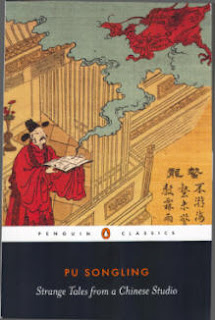Ghosts of China's Past (and Present)
Ghosts were one of the few things that Confucius refused to discuss. But in spite of the tremendous influence his ideas have had over Chinese culture, stories and superstitions about specters from the netherworld have proliferated from his time into the modern day.
The Zhou Dynasty 周朝 (c. 1046-256 BCE) thinker Mozi 墨子 (c. 470~391 BCE) was a big proponent of ghosts, writing several chapters citing them as a powerful tool to keep people in line that has been employed since the reigns of the legendary sage kings who founded the Xia (夏朝 c. 2070~1600 BCE) and Shang Dynasties (商朝 c. 1600-1046 BCE). For Mozi, these spirits form a sort of omnipresent, invisible, and inescapable morality police: “Even in solitary caves, big ponds, woods and valleys, the ghosts and spirits are watching. And the punishments from ghosts and spirits cannot be evaded.” The roughly contemporaneous philosophies of Daoism and Confucianism largely eclipsed Mozi’s extremely pragmatic ideas, but when one delves into Chinese folk beliefs and popular stories, ghosts are lurking everywhere.
Ghosts are nearly as crucial to Chinese detective stories as snappy one-liners are to today’s TV crime dramas. In The Celebrated Cases of Judge Dee 狄公案, a novel first published in the 18th century and translated into English by Robert Hans van Gulik, the hero, based on an actual Tang Dynasty (唐朝 618-907 CE) judge who investigates crimes and also tries the perpetrators, frequently consults with ghosts in dreams and graveyards
After all, who needs forensic science when you can just interview the murder victim?
An even more famous collection of stories from the Qing Dynasty (清朝 1644-1911 CE) Strange Tales from a Chinese Studio 聊齋誌異, by Pu Songling 蒲松齡 is filled with tales of both noble and nefarious ghosts, demons in the guise of women or animals, cannibalistic highwaymen and other supernatural oddities. Indeed, everyone loves a good ghost story; no matter what language they speak.
But belief in ghosts is not confined to China’s past. I distinctly remember the shocked expressions of rural Sichuan residents when I told them I had spent the prior night camping alone in the woods: “You guizi! 有鬼子” they said, meaning, “There’s ghosts!”
But even many urban, modern, educated, and atheist Chinese of today still burn incense and give offerings at their ancestors’ tombs. For many, this is more about respect for family and cultural traditions than actual religious belief; they expect boons from their ancestors like Americans expect groundhogs to predict the weather. However, if they hold onto the comforting idea of ancestors watching over them, then perhaps they have to accept the slight possibility that less benevolent phantoms also lurk in the shadows.
Indeed, the words of Mozi still haunt us today, “If from antiquity to the present, and since the beginning of man, there are men who have seen the bodies of ghosts and spirits and heard their voice, how can we say that they do not exist?”



Comments
Post a Comment